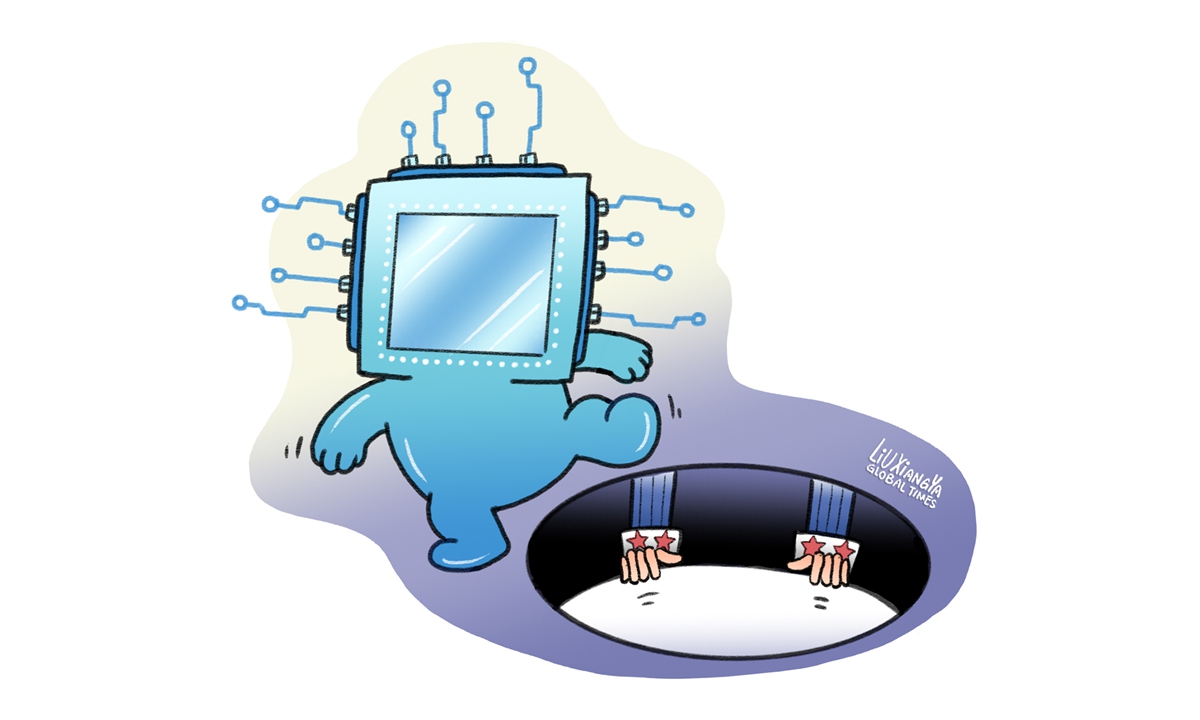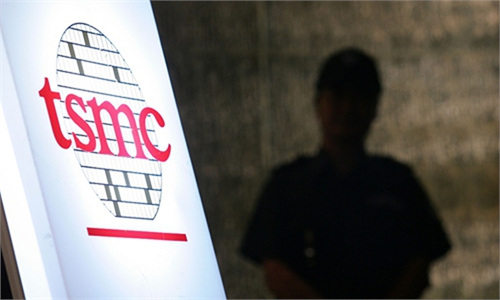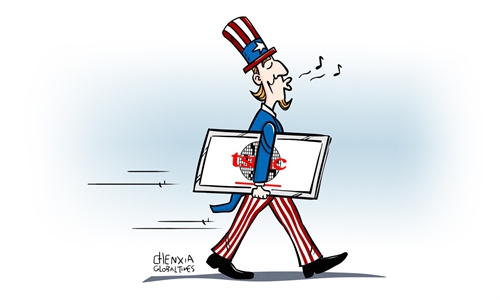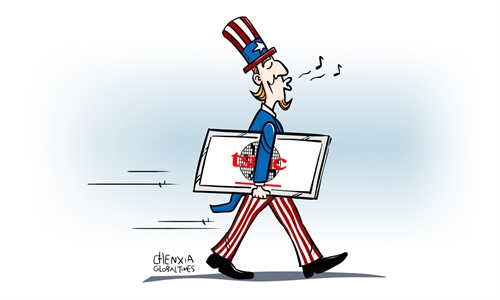
Illustration: Liu Xiangya/Global Times
Taiwan Semiconductor Manufacturing Company (TSMC)'s plan to increase investment to expand its chip-making plants in the US is facing a competition for water resource - a key element in semi manufacturing - with US chipmaker Intel in Arizona, one of the driest US states, leading American investors to take a bearish view on the prospect of TSMC's US plant, US financial media outlet Barron's magazine reported.
If TSMC builds its site out to a full six fabs as planned, it could require water supply enough for 160,000 homes every year, which means it is in a tight water resource battle with local residents and Intel, which is also building nearby. TSMC's US plant is forecasted to contribute only 10 percent of the firm's revenue, according to one US investor, adding that his company is not betting on TSMC's plant in Arizona, according to the report.
The reasonable concerns of American investors have fully exposed how ridiculous it is from an economic point for TSMC to move its semiconductor production to the US. The battle for water resources faced by semiconductor companies in Arizona has exposed the multiple irreconcilable contradictions and unfeasibility of the US' semiconductor "reshoring" plan led by protectionism and the "US first" approach.
The battle for water resource is only a small part of a range of serious challenges TSMC encountered in the US. From beginning construction of a $12 billion factory in Arizona in 2021 to expanding the investment to $40 billion in last December, there has been no shortage of media reports claiming the company has encountered challenges such as difficulty in recruiting workers and managing rising costs.
Moving from the island of Taiwan, which has abundant water resources, and is adjacent to strong supply chain support, sufficient supply of talent, and strong market support in the Chinese mainland, to build a factory in Arizona, which is facing challenges and difficulties in all these aspects, this is nothing like a normal business decision. Evidently, it's only a result under the political interference of the island's Democratic Progressive Party (DPP) authorities colluding with the US government.
Undoubtedly, without the semiconductor supply chain established in Asia for decades and the support of the huge Chinese mainland market, TSMC's Arizona fabs will struggle to thrive.
In face of a fierce competition for talent in Arizona with local competitors like Intel, TSMC has been forced to send technicians from the island of Taiwan to support the construction of the US factory. Now facing the battle for water resource, does TSMC have to transport water resources from Taiwan island to its Arizona plant?
However, even if Taiwan island's DPP authorities are ready to sacrifice Taiwan's semiconductor industry to support the US, it does not mean that the US' semiconductor "reshoring" plan will be successful, as the US' domestic economic conditions and industrial structure are not suitable for hosting semiconductor companies from Asia where the semiconductor supply chain is accelerating integration and upgrading. The Biden administration's plan to revitalize semiconductor sector is facing grim prospects.
The healthy development of semiconductor companies is inseparable from a series of conditions and support, such as government support, suitable markets, upstream and downstream industry chain cooperation, talent and relatively low operating costs. The US cannot guarantee supports in all these aspects. Therefore, after semiconductor companies like TSMC move their production to the US, their operating costs will keep rising, and they will lose competitiveness in the market. In fact, the slowdown in the technology upgrading of American chip companies such as Intel in recent years has proven this.
With artificially restructuring of global industrial chain against the market forces, the US knows well that Asian companies such as TSMC and Samsung are the biggest competitors in the US semiconductor industry. Therefore, when they compete with local US companies for water resources and other resources, the US government will likely not hesitate to sacrifice their interests to protect the development of the local semiconductor industry to the maximum extent.
The author is a reporter with the Global Times. bizopinion@globaltimes.com.cn



